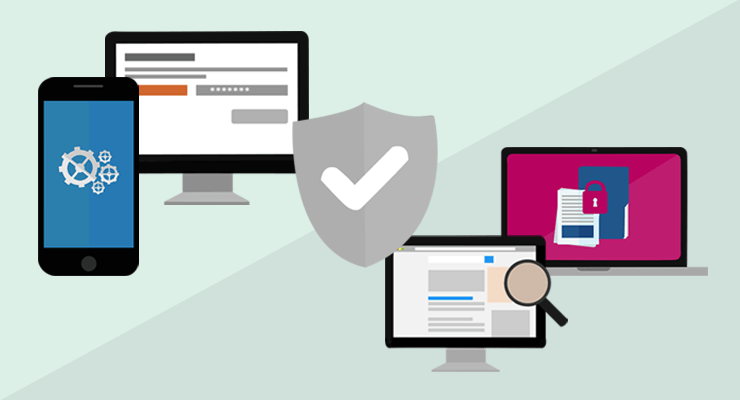
Cyber Hygiene at Home
Personal hygiene, we all have some sort of daily routine. Think of cyber hygiene similarly, read more about developing your own cyber hygiene routine for today’s digitally connected world.
What is it?
Cyber hygiene refers to best practices and activities that a computer user will underrate to boost their cybersecurity when partaking in common online activities, like browsing the internet, emailing, or texting.
With entire families currently sharing home networks for school, work and private use, there has never been a better time to share the important of cybersecurity practices with your household.
This quick guide made by Toos can assist you in discussing cyber safety with your families and co-workers.
Grade-schooler:
When it comes to online danger, children aged 5 to 11 years old can be easier to protect. Not only are their online experiences less freelance than older age groups, there also are a great deal of excellent parental guidance apps that can help protect them. However, no app is perfect. As many of us know, inappropriate content can appear unexpectedly even with the most effective parental controls. The best defense is providing your children with knowledge.
Cyber hygiene for ages 5-11:
- Limiting their screen time and inspiring play that does not involve screens.
- Giving them their 1st lesson on what is and is not true regarding news.
- Asking them to inform you once they come upon a negative experience online, whether it is a picture or someone reaching out to them.
- Explaining to them that there are some components of the internet that may be harmful to them and even us adults.
- Telling them that not everybody they meet online is a friend.
Teen:
Many kids between the ages of 12 and 17 get their first smartphone. The independence and freedom that comes with having the device makes observing their online activity difficult, as a parent or older sibling. However, it additionally provides a superb chance to show them the way to be accountable within the digitally connected age.
Cyber hygiene for ages 12-17:
- The importance of balancing screen time with physical activities.
- Notifying an adult or family member if you are being contacted by a stranger online.
- Cyber criminals search for sensitive information like your address or the name of your school
- Location apps like Apple Find My Friend or Google Trusted Contact are important to have, they provide an invisible layer of protection and let your family know where their kids are at all times
Young Adult:
This age group is the most complicated for parents (18-21) within the digitally connected world, and the stakes are bigger than with younger kids. The older kids get, the more they need their freedom. Giving them independence, both physically and digitally, while trying to keep them safe becomes very difficult. Talking about the digital world with your kids now becomes a lot more difficult because the conversations are more serious than ever before.
Cyber hygiene for ages 18-21:
- Whatever they post online may stay online forever
- Cybercrimes needs to be a more serious conversation within the household now (bring up examples and scenarios to prepare them for any situation)
- Cyberbreach and the vulnerability needs to also be a conversation as they are in adulthood
Conclusion:
With so many people at home working and studying remotely, many have questions on the safety of their home internet networks. If you have any concerns regarding your home network or any other cybersecurity related questions, be sure to reach out and speak with our IT experts.
For more information regarding cybersecurity, check out our blog on Cybersecurity: Phishing Scams.
